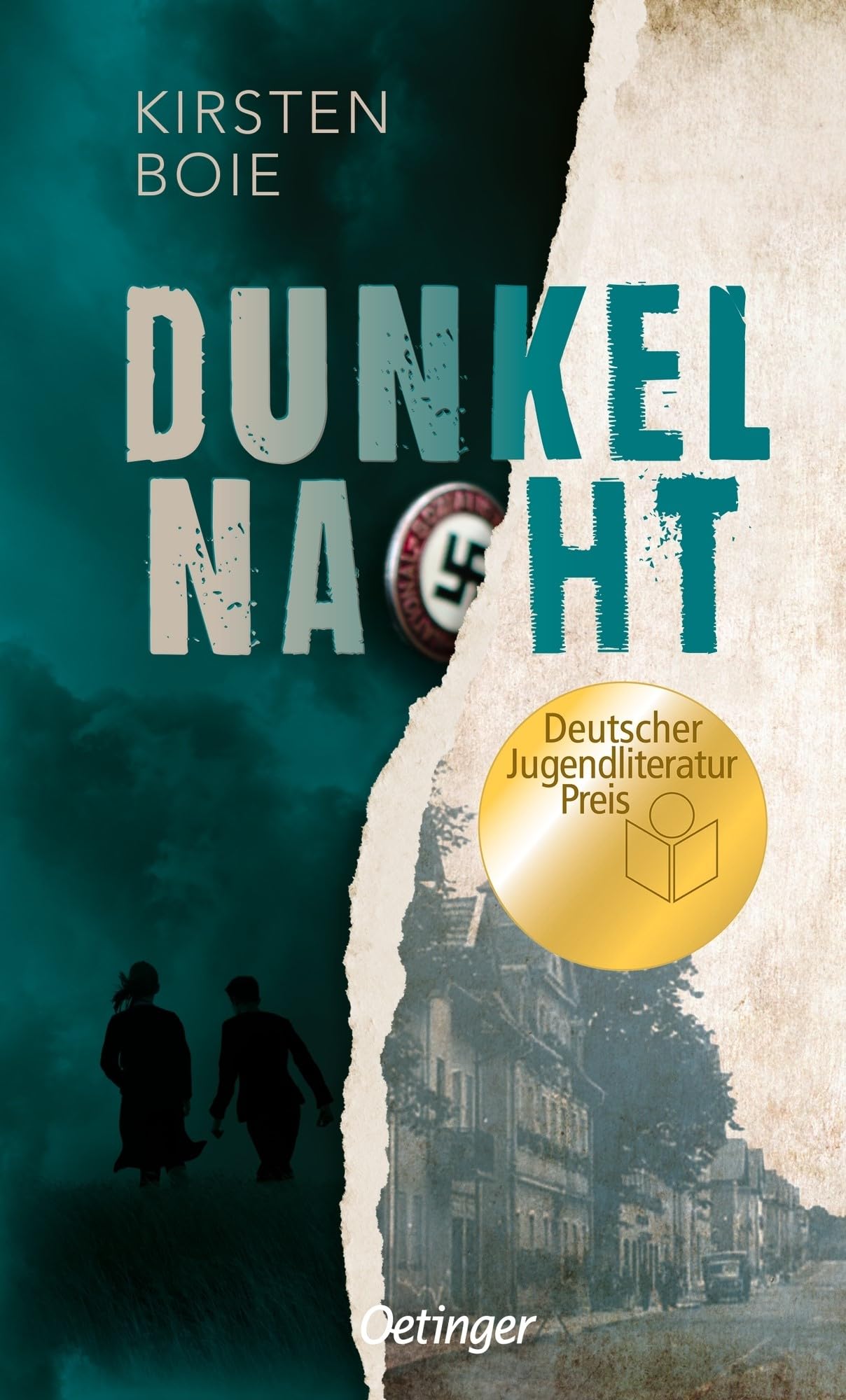By Boris Babette and Lots of Skeletons
When the world turns a blind eye, can a few small acts of courage light up the dark?
Please note, this book is currently only available in the original language, German. Kirsten Boie’s historical novel, “Dunkelnacht,” plunges young adult readers into the final, harrowing days of World War II in Germany. The story unfolds in April 1945, as the Allied forces are closing in. In the small town of Penzberg, whispers of an early liberation spark a flicker of hope. Boie masterfully weaves together the perspectives of three young protagonists, Marie, Schorsch, and Gustl, each grappling with the chaos and moral turmoil of a collapsing regime. As their town becomes the backdrop for a brutal, last-ditch act of Nazi violence, these teenagers are forced to confront questions of loyalty, resistance, and survival in a world where the lines between right and wrong have been irrevocably blurred.
The narrative is deeply embedded in the historical events of the “Penzberger Mordnacht” (Penzberg Murder Night), a brutal, massacre that occurred just hours before the war’s end. Boie unflinchingly explores the themes of collective guilt, individual responsibility, and the terrifying power of ideology. The story examines the suffocating atmosphere of a society saturated with fear, where neighbors turn on neighbors and speaking out can be a death sentence. “Dunkelnacht” offers a powerful and humanizing look into the complexities of life within Nazi Germany, moving beyond simple caricatures of victim and perpetrator. It serves as a vital reminder that history is made up of individual choices, and it challenges readers to consider what they might have done in a similar situation.
Kirsten Boie is one of Germany’s most distinguished and prolific authors of children’s and young adult literature, and her meticulous research lends profound authenticity to the narrative. “Dunkelnacht” has been lauded for its historical precision and emotional depth, receiving the prestigious German Youth Literature Prize. This novel is more than just a history lesson; it is a compelling and deeply moving exploration of the human spirit in the face of unimaginable darkness. It belongs in our classrooms and libraries because it asks the most pressing questions of our time: what does it mean to be brave, and what is our duty to one another when history is being written?

